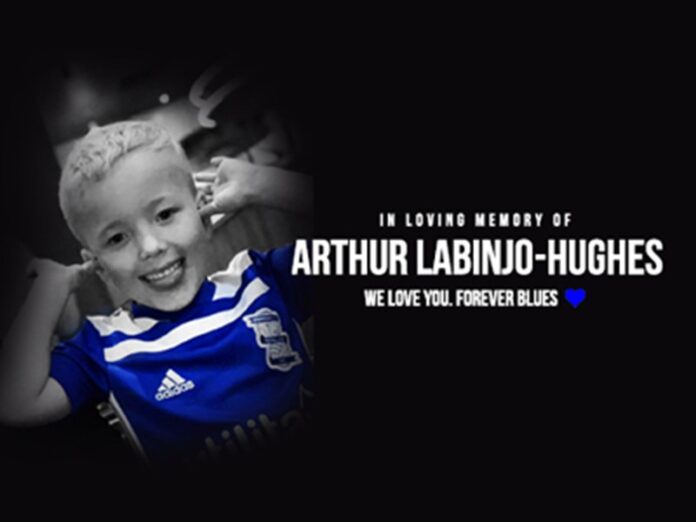Dearest Arthur
A lovely smile, bright, intuitive, exuding kindness that was not returned,
Sleep well
Theresa

I have reflected, with a heavy heart and a sense of deep grief and horror on Arthur’s tragic and appalling murder, and what it means for all of us. Many colleagues within and beyond my own teams at Dorset Council are also naturally shocked and horrified at what they have seen, heard, and read.
Arthur’s life was one of loss and suffering; loss of his mother and then when in the ‘care’ of his father and stepmother, a life full of neglect and unimaginable pain. The judge sentencing them for manslaughter and murder rightly recounted that their actions were at times sadistic.
The government has announced a major review into the circumstances, with the aim to determine what improvements are needed by the agencies that came into contact with Arthur in the months before he was murdered. The National Child Safeguarding Practice Review Panel will lead the review.
It is right that a serious and deep conversation is required to understand how such a situation could exist and appear to go unseen in our society in 2021. Here, in Dorset, we want to reassure residents that the safety and security of all Dorset’s children is our number one priority, and that they are safeguarded at every step of their lives.
Our Children’s Advice and Duty team (CHAD) are available 24/7 for anyone who is worried about a child or young person. The team provide a single point of contact for members of the public and professionals who are concerned about a child or young person or believe them to be at risk of harm. Ofsted, which recently rated the council’s Children’s Services as ‘Good’, said of CHAD: “The ‘front door’ provides a calm, well-organised service, where timely and appropriate decisions are made about how to protect and support children most effectively… and when children are, or may be, at risk of significant harm, social workers investigate quickly, with the support of key partners, including the police, when needed.”
| If you are worried about the safety or wellbeing of a child or young person who lives in Dorset contact our CHAD service on 01305 228866. |
Arthur’s family members certainly reported concerns to the key safeguarding agencies of Solihull’s Children’s Services and the Police – their actions will be heavily reviewed.
We cannot ignore that the period Arthur lived within the household correlated with the first Covid lockdown, with social distancing and school closedowns, denying him of the safety net of eyes and ears. It is not the first time such a tragedy has occurred, so it is natural for people to question how this could not have been obvious to anyone investigating concerns. I am sure the review will provide answers in relation to Arthur’s life and the roles of safeguarding agencies.
However, it is essential that we resist blaming and shaming an entire system, that in truth works effectively safeguarding children every day. We must hold onto understanding the difference between the people who murdered Arthur and the vast majority of parents and carers of children in our communities.
For almost all families, Covid lockdowns has led to an increase in pressure and stress within the family and it is essential all those involved in safeguarding continue to work with these families to restore wellbeing and reduce risk within the family.
This includes practitioners building honest meaningful relationships with families. As well as empathy, honesty, and compassion, it must include a degree of inquisitive curiosity that allows for us all to take seriously factors that simply do not add up.
From my years in practice, I know that behaviours of adults who intend to harm children can be sociopathic, narcissistic and/or psychopathic meaning a deep, well informed, and well guided assessment is crucial. The allegations of children hurting themselves, as seen with Arthur, or blaming siblings a common example, poisoning with salt all too common, equally complaining against a practitioner who is getting too close to the truth.
It means practitioners need full and complete data and full engagement from other professionals. They need support to avoid the sometimes overwhelming sense of helplessness and hopelessness, and have all this underpinned with high quality training to undertake forensic assessment that can be presented to the courts who will arbitrate a final decision. All of this takes time and investment.
Practitioners are frequently presented with angry, distressed and at times aggressive families – many of these families will, with support, be able to provide good enough care for their children and as a society we need them to be able to do this.
We need an integrated government approach that understands we must never again shut down whole parts of the system that protects our children. We need a national policy on families that understands the need for investment and support in those who love their children but are struggling to do their best by them. We need a greater integration of the professional network who are required to step into the darker places of adults who intend harm to their children.
I’d like to finish by thanking my teams at Dorset Council and all our partners for all they have done and continue to do in supporting our children. We live in the knowledge that there are people throughout the safeguarding world who will not rest until stories like Arthur’s are a thing of the past.
Theresa Leavy, Executive Director of People – Children
If you like our content please keep us going for as little as £2 a month https://dorseteye.com/donate/







